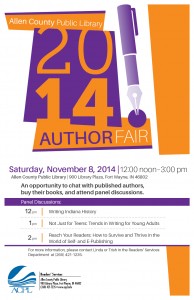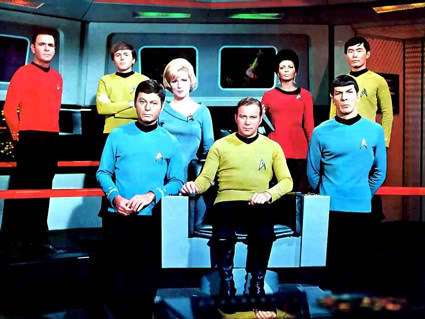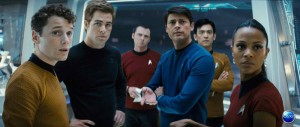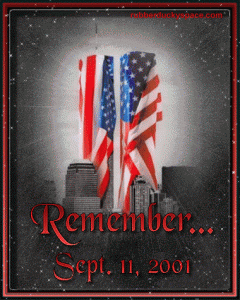In the latest episode of the “Derailed Trains of Thought” podcast hosted by my friends Nick Hayden and Tim Deal (which if you aren’t following, you should), they spoke about the lesser-known stories that have influenced them. Nick mentioned that he could easily name most of the influences in the first 50 pages of his first novel, Trouble on the Horizon (one of which is “Pokemon”!?).
This made me think about the literary influences that came together and—by their powers combined!—became my first novel, Pandora’s Box. So, just for fun, I decided I list them and explain what they contributed. You may be surprised by what I include and how they affected my writing of that book.
(NOTE: I’m excluding the personal experiences and experiences of others that contributed to its creation. I’m also excluding [most of] the research I conducted and the “soundtrack” I compiled as I wrote it. As I said, this is focused on literary influences. I make little references to other literary works, but I’m not including those because their influence is minimal).
In no particular order…
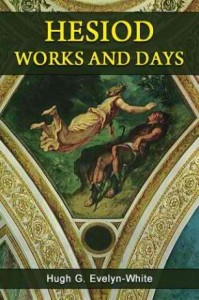
Works and Days by Hesiod
This is an obvious but obscure influence. It’s a lesser-known epic poem by the ancient Greek poet Hesiod. Why is it here? It details the best-known version of the Pandora’s box myth (to my knowledge there are two). Honestly, it’s a terribly boring read other than that story. Not to mention misogynistic. Hesiod, from what I remember, blames most the world’s misery on women, and uses the story of Pandora as one of his bits of evidence. When’s he’s not bashing the fairer sex, he’s giving instructions on farming. Seriously. He’s no Homer.
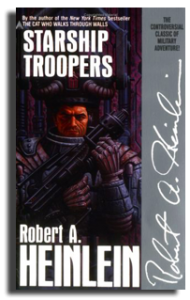
Starship Troopers by Robert Heinlein
I was writing a military science fiction novel, so I had to read the all-time great of the subgenre. A friend in college highly recommended book, saying the popular but awful movie was a slap in the face. I loved every page of the book. Heinlein’s futuristic military, in particular its unmerciful training methods, influenced how I created the Vanguard. Its influence is strongest during the bootcamp chapters of Pandora’s Box. True confession time: My sexist drill instructor, Sgt. Barak, is modeled after that novel’s drill sergeant, Sgt. Zim (my favorite character). Just read the boot camp chapters of both books and you’ll see the similarities. This was by the most influential on the writing.
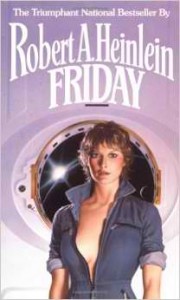
Friday by Robert Heinlein
Another Heinlein book had a more indirect influence. I read it because it seemed similar to what I was endeavoring to write: a science fiction adventure story with a female lead written in first-person by a male author. However, I quickly learned that Heinlein’s titular character had little in common with mine. Friday’s morals are looser; she has a mellower personality; and she spends most of her time thinking she isn’t a real person. Also, there wasn’t as much action/adventure as I expected. It’s not a bad book, though.
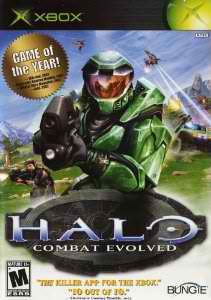
Halo
I wrote Pandora’s Box as the Halo video game series made it meteoric rise. I didn’t own an Xbox, but I played them often with my friends and brothers. I include it because I modeled the Vanguard’s cyber-armor somewhat on Master Chief’s armor. Some of the Vanguard’s other weapons and gear were inspired by items in the games. My book’s action sequences also have a bit of a Halo flavor, particularly the shoot-outs. If I was going to cosplay as a character from the book (which I’ve considered), I would use designs for a Master Chief costume as my starting point.
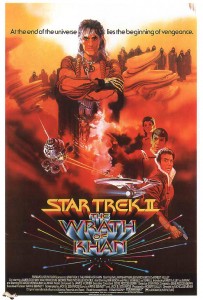
Star Trek II: The Wrath of Khan
It’s my favorite movie, so how could it not play a part? When I listened to director Nicolas Meyer’s commentary, he said he told the late great Richardo Montalban that he was to play Khan like he was King Lear. “Madmen are scarier when they’re under control,” he said. The audience never knows when such characters will snap or what will set them off. Despite being a megalomaniac, Khan is a man who cares deeply for his followers (a side Benedict Cumberbach displayed when he played Khan in Star Trek Into Darkness). He’s a three-dimensional villain. Hearing all that inspired my characterization of Erebus the Overlord. I presented as a cold, calculating dictator who, it seemed, was trying to liberate his oppressed people. I enjoy complex villains.
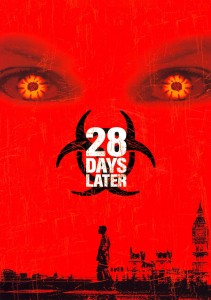
28 Days Later
I hesitate to include this film because I felt like the movie stole my idea when I watched it (I’ve since learned it wasn’t the first. Heck, I just watched an episode of the original Star Trek that had an element similar to this). Regardless, at the time I thought this was a unique take on zombies. These weren’t reanimated corpses with an appetite for flesh. They were victims of a disease that acted like a nasty strain of rabies. Despite feeling like my idea was stolen, the film influenced how I presented the Morlocks. What the film didn’t steal was the moral dilemma I injected: are they monsters or simply ill people? That was an angle I never saw any zombie story. That was the part I was glad wasn’t “stolen.”
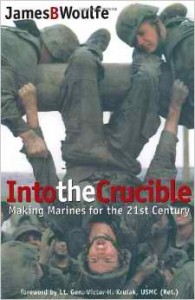
Into the Crucible: Making Marines for the 21st Century by James B. Woulfe
This is a nonfiction book I read as part of my research for the novel. It describes the 54-hour exercise trainees must endure to become Marines. It inspired not only many of the bootcamp exercises, but it also gave me my heroine’s name. It briefly recounted the legend of Lucy Brewer, who disguised herself as a man to serve during the War of 1812. I took her surname for Pandora. The Vanguard has its equivalent of the Crucible, the Highway to Hell, which is mentioned once. Perhaps I’ll write a short story about that. (Hmm…that’d be a nice addition to next year’s edition of Missing Pieces).
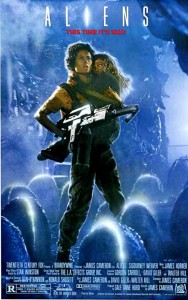
Aliens
James Cameron Aliens is an epic military sci-fi tale with incredibly good pacing. My own writing has often been complimented for great pacing and suspense. More importantly, the film features a strong heroine. Ripley has much in common with Pandora: she’s a woman in a male-dominated field; she’s tough yet compassionate; and she can carry her own against the boys. I have a feeling Ripley and Pandora would be best friends if they met.
Honorable Mentions:
–Teenage Mutant Ninja Turtles (1990): I always thought Shredder had an awesome entrance, so I used a similar one for Erebus when Pandora finally meets him.
-The Last Letter of Sullivan Ballou: A letter written by a Civil War soldier to his wife on the eve of the Battle of Bull Run, where he died. The man’s sentiments inspired the characterization of Dante, Pandora’s boyfriend.
–Alien: Nick Hayden was my beta reader for the horrible first draft of the book. One thing he said that stuck with me was that I made excellent use of silence during the action sequences to create tension and atmosphere like Ridley Scott did in Alien.
What are some of your literary influences?
